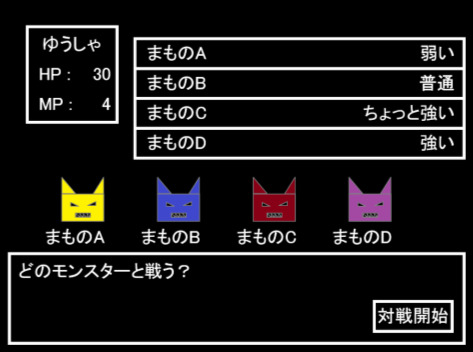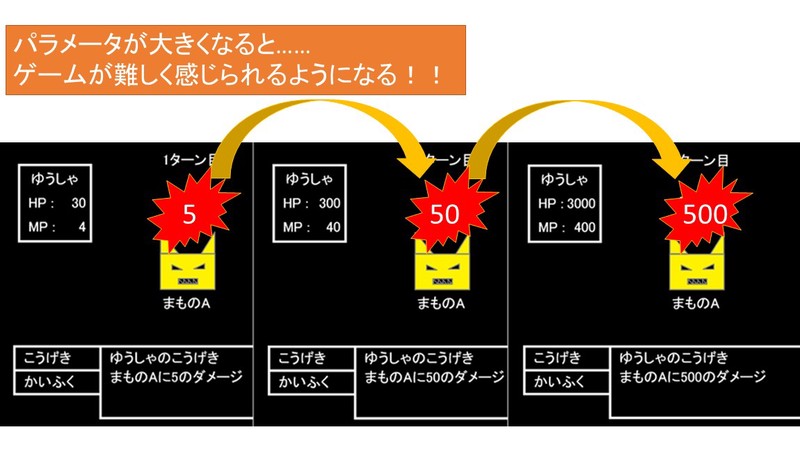In role-playing game (RPG) combat scenes, numerical values such as character HP, attack power, and damage dealt are presented to players. These numbers increase as player characters grow, serving as an important mechanic that allows players to feel growth and achievement.
In this study, we conducted an experiment to investigate how such numerical increases affect actual gameplay experience. We had participants play an experimental program that simulated typical RPG combat scenarios. We compared three conditions: standard parameter settings, all parameters displayed at 15 times the standard values, and all parameters displayed at 225 times () the standard values. In all conditions, the relative ratio between player character strength and enemy character strength was kept identical, so the difficulty remained the same across all conditions.

The experimental results showed that when numbers became larger, players tended to perceive the game as more “difficult.” Specifically, despite the actual difficulty being identical, players felt the game was “harder” when numerical values were larger.
For example, we observed play patterns where players would overestimate damage dealt to enemy characters and become greedy with attacks, or conversely, overestimate damage received from enemies and rush to heal too quickly, exhausting their resources. These behaviors were identified as causes for perceiving the game as “difficult.”
Notably, no clear tendency was found for larger numbers to increase the “fun” factor of the game.
These results suggest that the magnitude of parameters in games can influence player psychology and gameplay, even when the actual difficulty remains unchanged.

